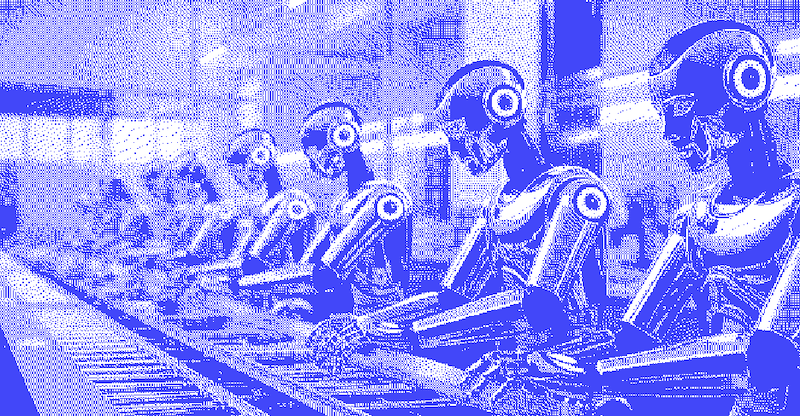Global prize program challenges researchers to create embodied AI models to outperform human experts in various ‘moonshot’ outcomes
The BitRobot Foundation, an open robotics research and development lab, has launched its $5 million BitRobot Grand Challenges Fund, a global prize competition designed to accelerate breakthroughs in robotics and embodied AI.
Inspired by DARPA’s Grand Challenge that spurred advancement in self-driving technology, the program pits autonomous robotics AIs against human experts in high-stakes physical tasks.
Each category carries up to a $1 million grand prize for the first AI model to decisively outperform human benchmarks – offering clear evidence that the technology has reached full autonomy for that task.
The inaugural challenges
- Urban Navigation: AI models will face off against human pilots in long-range city navigation missions, beginning in the Bay Area before expanding to cities worldwide. Success here could pave the way for safer, more efficient autonomous transportation in dense urban environments.
- IKEA Furniture Assembly: Robots will attempt increasingly complex multi-part furniture builds, testing manipulation and planning at human levels. Advancements in this challenge translate to real-world applications in logistics, home assistance, and industrial automation.
- Origami Dexterity: Co-organized with the Nippon Origami Association, this challenge will push fine-motor control, with robots attempting to fold designs that demand the precision and creativity of skilled origami masters. Breakthroughs in fine-motor control here have implications for delicate tasks in fields like surgery, electronics, and caregiving.
Each competition provides clear rules, evaluation criteria, and submission processes. The first embodied AI system to achieve a decisive win over human experts in any category secures up to a $1 million prize – setting tangible benchmarks for how robotics can advance from lab demonstrations to real-world impact.
Humans as the benchmark
The BitRobot’s Grand Challenges are designed to measure embodied AI progress against human expertise. In the navigation challenge, embodied AI models will be tested against skilled human gamers with hundreds of hours of remote driving experience.
In the Origami Dexterity challenge, the Nippon Origami Association will provide master folders whose work sets the human standard that robots must match.
These comparisons make success unmistakable: if a robot can consistently beat humans, the field has reached a superhuman level of physical intelligence.
Regular Competition, Global Stage Competitions will be held regularly – quarterly – and aligned with leading academic conferences such as ICRA and IROS whenever possible to ensure the results are visible, reproducible, and recognized by the global research community.
This cadence will allow researchers to track progress over time and build on each other’s advances. Driving Hardware and AI Development Together While the program benchmarks AI models, it is also expected to drive advances in robotics hardware.
For instance, as robotic hands become more dexterous and capable, embodied AI performance should rise in tandem – especially in manipulation and dexterity challenges like origami.
An Open Call to Innovators The Foundation invites researchers, universities, startups, and independent innovators to participate in the inaugural challenges or propose new ones. Sponsors are also encouraged to expand the prize pool, ensuring that more moonshot tasks can be tackled.
Jonathan Victor, president at the BitRobot Foundation, says: “DARPA’s Grand Challenges reshaped the future of self-driving cars. With BitRobot, we’re taking that model further.
“By testing AI against human experts, holding competitions regularly, and sharing results openly, we can chart the real progress of embodied AI and bring robotics closer to everyday impact.”
For details, submission guidelines, and updates, visit bitrobot.ai.

